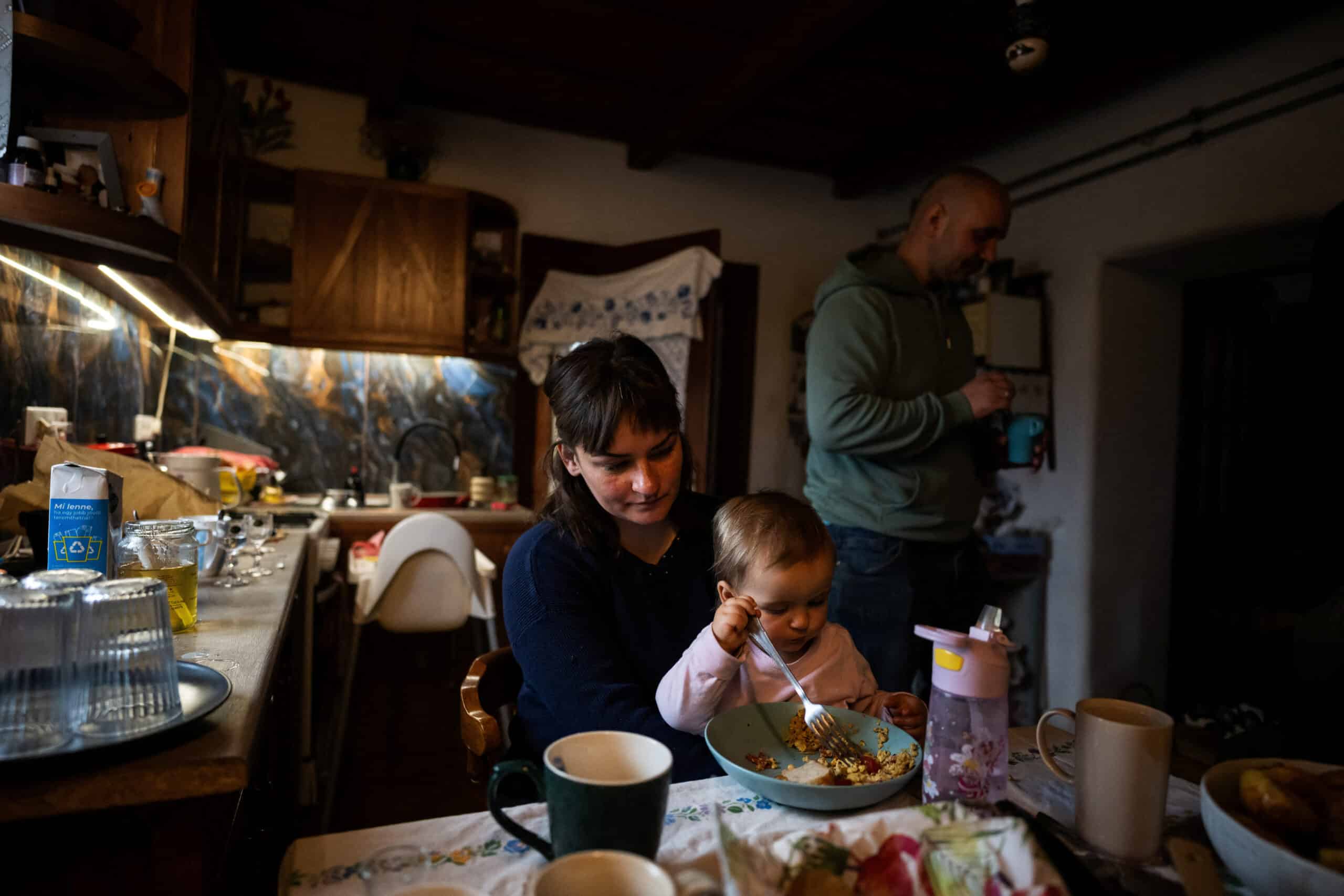Sustainable Living: A Growing Trend in Hungary
In eastern Hungary, Laszlo Kemencei and his family are redefining the essence of sustainable farming and self-sufficiency. On a quaint 4.5-hectare farm outside Ladanybene, Kemencei, his wife Cintia, and their young daughter Boroka live in harmony with the land, embracing practices that ensure the longevity and health of their environment.
The Kemenceis’ approach to agriculture includes free-range livestock, minimal soil disturbance, and the absence of pesticides. Their diet is supplemented by homegrown vegetables and meat either consumed within the household or used in barter trade with like-minded families. This lifestyle choice is not just about frugality; it’s a conscious decision to minimize their ecological footprint.
Despite the challenges, Kemencei remains optimistic about their path towards sustainability. “This land, we have not inherited from our fathers, but we have it on a lease from our children … so we try to live and farm the land in a sustainable way,” he explains, emphasizing the importance of preserving the land for future generations.
While official data on Hungary’s sustainable living communities is scarce, anecdotal evidence indicates that more families are adopting similar lifestyles. The reasons vary from reducing living costs to seeking a closer connection with nature. Sustainable Regression, a loose collective of individuals committed to eco-friendly practices, boasts up to 800 members.
Others, like Akos Varga and his wife Gabi, have transitioned from successful careers in IT and solar panel businesses to a life that prioritizes self-reliance and community. They represent a segment of society that questions conventional definitions of happiness and seeks fulfillment through simplicity and nature.
The Art of Barter Trade
For Kemencei, trust-based barter systems are integral to their way of life. Exchanging goods with friends ensures that everything from a pot-bellied pig to a rooster is sourced from farms with similar ethical standards. “We don’t want to change the world here … or become some kind of superheroes,” Kemencei says, underscoring their desire to live sustainably without grandiose ambitions.
While not entirely off-grid, the family does enjoy some modern conveniences such as internet access and purchased utilities. However, they draw water from a well and have plans to further reduce their reliance on external resources by installing solar panels and a wind turbine when financially feasible.
With a monthly budget of approximately 250,000 forints ($680), the family manages their needs, purchasing only essential items they cannot produce themselves. Their innovative walipini greenhouse allows them to cultivate plants year-round, demonstrating their commitment to adaptability and resourcefulness.
Kemencei’s philosophy is one of moderation and awareness. He advocates for a slight reduction in desires, likening society’s consumption patterns to riding a galloping horse without pause. “This is scary, but I think everyone should do their best within their limits,” he concludes, offering a grounded perspective on individual responsibility in the face of global challenges.






